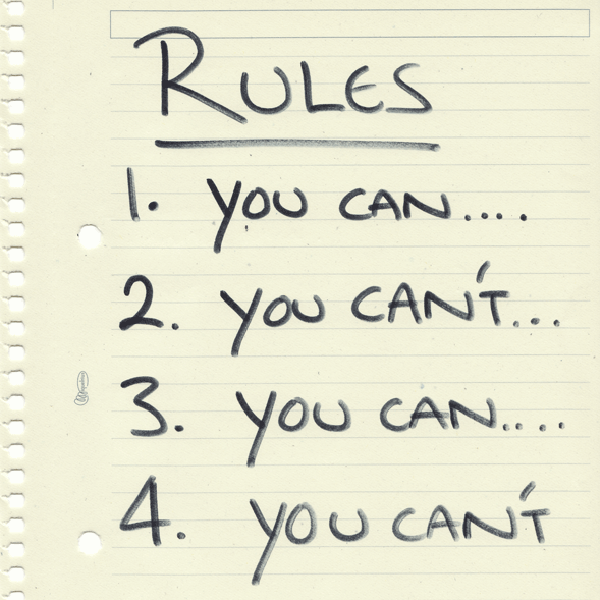and important problems your team is facing.
Of course, no CEO can possibly be aware of all the operational details at the same level as her employees. Nevertheless, it is important to stay connected with the workers and to stay up-to-date on the real state of things. I’d take a liberty and outline that here a CEO may turn to the experience of a project manager who is always right in the middle of the project whirl. If you are one of those successful CEOs for whom it’s 101, I honestly applaud you and hope you don’t mind if I share this advice with the rest. Hopefully, it will make some companies become more efficient for the greater good of CEO, employees, customers and shareholders.
In my opinion, seven key things that CEOs can learn from project managers - in no particular order - are:
#1 – Strong Customer focus
CEOs’ schedule is normally overfilled with meetings. But most likely, you aren’t usually in a position to deal with the day-to-day customer – the end user in the trenches.
You may think that’s the project manager’s role, but that’s also where the real customer satisfaction is developed. If you were able to take the time and interact with your daily customers, you would be surprised at the number of useful insights they can provide you about your service (especially if they are angry or upset with it!).
The practice of CEO regularly talking to customers provides you with versatile and objective picture of their needs and also helps establish a very positive image of the company. The customers’ confidence and satisfaction won’t take long to appear.
#2 – Delegate to survive
Generally, CEO is responsible for everything. In other words, for company’s success or failure.
No wonder that it is vital to pick up the high-priority goals and handle them by yourself. However, learn to delegate the rest to other chief officers (be it CIOs, CTOs, CMOs or COOs) and your administrative assistants.
That’s exactly the killer skill of any project manager who delegates to survive. She must know the skills of their project staff (which differs from project to project) and must know what to pass of to whom and when to do it. So does an efficient CEO at the senior team members’ level.
#3 2-way Communication as a tool
The ability to communicate your vision to the employees in a clear and persuasive way is critical for any CEO. At the same time listening to your team’s feedback is no less important, as it can be a source of useful insights based on their day-to-day problems that you are not always aware of.
Here, once again, you may take a look at project managers who find themselves between their team and the top management and develop both skills perfectly. They ceaselessly communicate important management’s decision to the team and at the same time pay great attention to team’s feedback to change their roadmap accordingly.
Adopting the same efficient two-way communication, you will be impressed to see how eager your team members are to make your vision come true.
#4 - Digging to understanding the real need
As a CEO, you are guided by the vision that makes the product unique. But probably you’ll agree that amending this vision according to customers’ needs, will bring the success much closer.
What is more, this should be real customers’ needs. The good project manager knows best that it’s highly likely that what customer considers being his own need is only a symptom of it.
CEOs can learn lessons here from project managers to ask questions and dig deeper into the real needs of their own organization rather than take information at face value. This will help avoid piles of corporate money spent on the wrong projects and processes due to lack of detailed evaluation of the real issues.
Don’t miss three more must-have skills for CEOs in our next post!

7 Things a CEO Can Learn from a Project Manager (Part 1)
- 5 min read
Related articles

The Rules of the Project: Two Strategies for Aligning Means
Aligning the means between individuals, project and organization is a Herculean task for any Project Leader. The means are the rules of the project. The way things are done. Following are two strategies that can be used to align means. To provide you with some ideas on the project baseline. To start the discussion. Patterning – Going Through The Motions In essence, with this strategy the project team is told what the means are; the larger organization knows best. This idea originates from Jeff Sutherland in “Shock Therapy: Bootstrapping Hyperproductive Scrum”. If you have a new team that has no experience with Scrum, you will put a very experienced Scum Master in charge and he will set the rules. Relentlessly. Only a few rules, that make up the basics of Scrum, but they have to be followed with strong discipline. The Scrum Master will make sure this happens. Set the rules first, than, after a while, let go when it becomes natural. This is called “patterning”. Continuous Transparent Feedback A human system always communicates with its environment and based upon the feedback it gets from it, alters its behavior. If a group of animals will drink water from a well and one of the groups dies because of it, they entire group may search for a different well. If a company introduces a new product, and sees its stock plummeting because of it, it might change its strategy. It is therefore essential that the project members get continuous feedback on their own performance and the environment. This is where the use of analytics, metrics, “in-your-face” information visualization and plain old coaching comes in. By providing feedback to the team on how well they perform under the current project rule set, they will adapt to more effective means if needed.

How to Respond to a Frustrated Project Customer
I'd like to say I never experience customer frustrations on any of my projects, but the truth is I've experienced some degree of customer frustration on nearly every project at some point during the process. It may be a big issue or it may be something miniscule, but at some point it usually happens. Customer frustrations can arise from any one of a number of things. From unanticipated change orders, to error-filled deliverables, to rude project team members, to project budget issues, to just conflicting personalities. Anything – literally – can set it off and it may not be a showstopper, but it should be addressed. The potential issues can be endless – so I definitely can't address all the possibilities here. But we can take the time to understand what is client relationship management. Let's discuss a few possible proactive or responsive measures we can take to try to alleviate customer frustrations if we sense that things aren't going as well as hoped…at least from the customer's point of view…. Step up communication practices Effective, efficient, and timely communication remains, in my mind, the number one responsibility of the project manager. All task assignments, all feedback, all customer interaction, all issues resolution, and all collaboration in general, begins and ends with good communication. In fact, with more than 50% of all projects failing, one survey showed that project managers cite 'poor communication' as the second biggest contributor to project failure – right behind 'bad or incomplete requirements.' If a failure point at the beginning of the project was to skip the creation of a project communications plan and now you're seeing communication breakdown, it may be the right time to go back and create the plan so everyone has the same communication expectations going forward for the rest of the project. Revisit weak areas There may be weak areas of the project that are causing the customer concern like how risk is being handled or possibly the delivery of error-prone deliverables. Revisit those weak areas and add more effort where needed. For example, begin reviewing risk topics and issues regularly on a weekly basis as part of the weekly status call or meeting with the customer. If deliverables have been a problem area, incorporate peer reviews on every future deliverable. Having the entire team review every deliverable will greatly reduce the likelihood of presenting the customer with a document or deliverable with issues or errors. React to team member concerns If the customer is frustrated with someone on the team, meet with the customer to find out why, meet with the team member to work out some corrective action, and then jointly meet with the customer to discuss. Personnel issues rarely work themselves out on their own and if there is friction between the customer and one of your team members it may not even be obvious to your team member. Bring it to the forefront and take the necessary corrective action BEFORE your customer has to request a replacement. If you let it get to that point, then your leadership will definitely be called into question as well. Circle back If necessary, go back to the kickoff presentation and notes to analyze where you are vs. where you should be in terms of process and promises and assumptions. It's never too late to try to get the project back on track and make the customer feel comfortable again. It's possible that you discussed processes, actions and policies that would be implemented or followed and they never happened or were never implemented. If that is the case, it may be frustration point for the customer to see that it was an expectation that was never fulfilled. Often the customer sees it as something they paid for but never received. Call for input Customer satisfaction is one of the three key indicators of project success, so responding to and resolving customer frustration should always be a top priority. When you've experienced customer frustration, how have you responded? What actions have you taken to resolve these issues? What general approaches have worked the best for you? Thanks – we'd love to see your feedback!

3 Kinds of Data To Help Avoid Project Management Failure
Our friends over at TechnologyAdvice spend a lot of time gathering the best tech advice for you to improve your work performance. This guest post from one of their writers, Christopher Herbert, tells you the three things you need to take your projects down the road to success. A project’s success or failure is judged by its adherence to the guidelines established when it began. This is both typical and reasonable, but only if those guidelines are well constructed and attainable. Often, an executive declares a project a failure based on the failure to operate within the allotted budget, failure to complete on time, or failure to produce a product of high enough quality. But such a judgment can be complicated. A project within its budget but failing to meet all the stakeholder’s ever-shifting needs may be considered a failure, while an ambitious project may go way over budget but still be considered a success because at least it was properly completed. These subjective definitions of failure reveal that the measurement of a project’s success is not always about delivery, but about perception. If the project guidelines can be better defined before it starts, it has a greater likelihood of achieving success. Data can improve these expectations. Data about past projects can help you set appropriate, attainable goals, and inform you as to how much of the unexpected should actually be expected. 1. Planned Versus Actual Start/End Dates for Similar Projects This data point requires that you’ve performed projects of this kind before. Simply collecting the actual start dates and actual end dates of previous projects (not the “projected” dates) will give you an average time-to-completion estimate, as well as high and low possibilities. For further predictive accuracy, find the number of work days between those two dates, accounting for holidays, corporate training days, employee PTO vacation days, and unexpected sick days. Then find the number of problems faced, how long it took to address them, the number of adjustments made to the original plan, and time lost due to plan adjustments. Much of this data may not be included in the official report, so it may require digging through emails, records in your project management tool, meeting minutes, or questioning those involved. Use this data to compare with the holidays, corporate training, PTO days, etc. that are planned to occur within the timespan of your upcoming project. Throw in the average unexpected setbacks that occurred in each previous project. This estimate, being based on previous experiences, has a higher likelihood of accuracy than a gut instinct, or even average project time. It may also be more convincing when attempting to explain why a project will simply take longer to complete than the executives would like. 2. Project Team Productivity Data This data point does not require prior projects of its kind per se, but it does require that you have some sort of data on individual employee productivity for similar tasks to those required by the current project. This requires a certain degree of willingness from your staff to either allow the monitoring - or participate in the monitoring - of how long it takes them to accomplish certain tasks. Ideally, this would be more than just a generalized, “It takes me two hours to do this.” Rather, it needs to be consistent, non-intrusive observations of the rate of task completion (such as noting each time an item is completed). Whether its measured in words per minute, lines of code per hour, or pots painted per day, this data can be used to create average productivity estimates, as well as minimum and maximum productivity levels. Once you’ve identified a realistic rate of production, you can either use that information to calculate team progress manually or with the help of project management software. Many PM applications allow you to assign tasks to a team of workers. With productivity data for each team member already entered, the software will give you an estimated completion time for the entire project. This allows you to estimate time-to-completion of a team’s assignments based on of the cumulative productivity of each employee, with data to back it up. One thing to be wary of is that many employees are uncomfortable with particularly detailed monitoring of their task progress. Assure them that the monitoring is purely for the sake of setting reasonable goals on future projects, which in turn will lead to higher success rates, and fewer project cancellations. 3. Resources and Materials Consumption Data Material consumption is some of the easiest data to find accurate values for, and can save you serious money. Analyzing the relationship between the amount of materials anticipated, requested, used, and leftover from previous projects should help you better calculate the amount required for your upcoming project. Similarly, quality assurance data on the frequency of defective products will help you anticipate the cost and delay of making up for imperfections. Aside from the materials alone, entire budgets of prior projects can be broken down and analyzed to find which areas frequently overspend, and therefore which areas need to be better planned for. Whether that be a particular resource, labor, or tool, it’s likely to go over budget again, unless real changes were made. All of this data collection is purely for the purpose of improving your project’s expectations beforehand. It’s the difference between simply picturing a finished bridge or piece of software in three months, and actually calculating out the time it will take for each team to perform their tasks based on numbers from their previous performances. Which method would you use to determine a project’s eventual success or failure?


